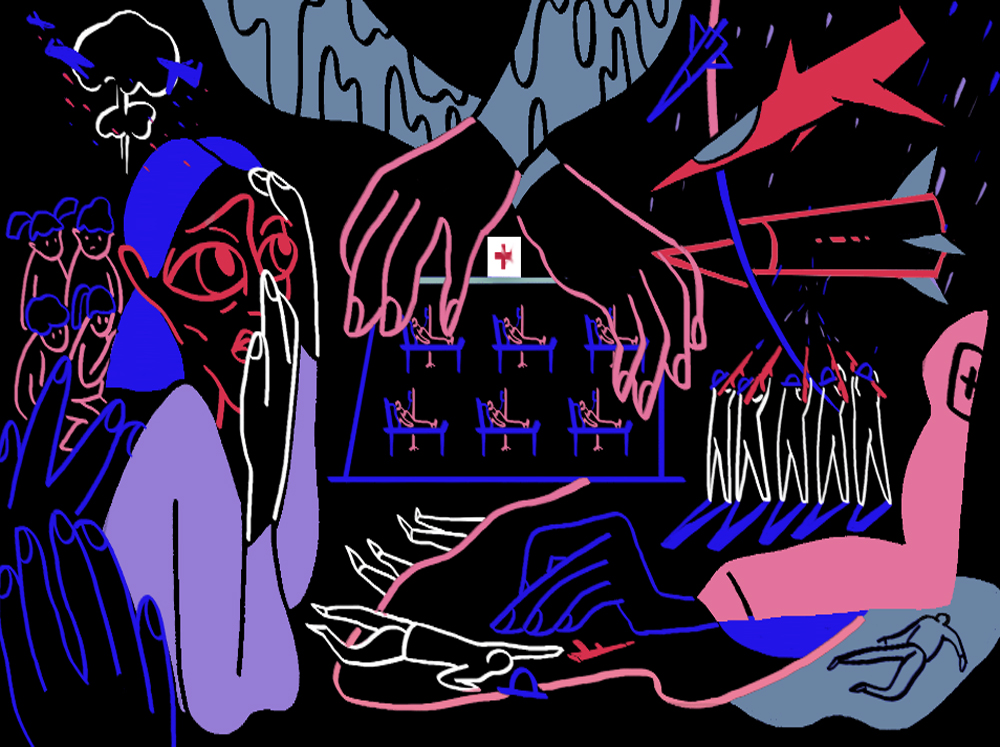
Sudan... Suffering from experiencing the war or fleeing from it
Walid Al-Noor
When the absurd war started on the fifteenth of April in Sudan, I was talking to a Syrian journalist about their experience with the war. He said to me: I fear for you the fate we had; we heard the same statements from your military that the battle would be resolved within weeks, then months, until we completed a decade.
In the seventh month of the Sudanese war, despite the foreign visits of the army commander and his address to the United Nations last September, no sign of a solution has appeared from the many initiatives, whether a permanent ceasefire or a political agreement, and no victory has been achieved for either party.
Despite the conferences and calls launched by international organizations for the relief of the people of Sudan, the reality on the ground is frustrating and steeped in suffering.
The displaced people suffer in shelters, and some of them spend their day under the shade of trees waiting for the sunset, to lie on the ground and rest a little from the heat of the day; but even sleep is elusive because they cant find anything to eat, with a severe shortage of food supplies in shelters, and no food but what is provided by initiatives launched by the youth of the cities.
Social media has conveyed calls in recent days to return to Khartoum state with insufficient justifications, in light of a complete power and water outage in areas where citizens have refused to leave their homes.
I kept in touch with some friends and colleagues who are still in the clash areas in Khartoum; their responses came with harsh words. They said that they had not seen or heard anything worse than what they witnessed and experienced in their lives; they got used to hearing the sounds of launchers and intense artillery shelling daily, and sometimes they hide under the beds, and have become accustomed to the shaking of the houses due to the shelling.
Some of them remained present forcibly; because some of the elderly among them refused to leave the houses they built with years of sweat. Others were unable to leave due to their circumstances, although the cost of movement within the cities exceeded 40,000 pounds (50), whether going for treatment or buying some necessities of life.
However, the shells falling on the houses caused the death of many people, especially children, and destroyed the houses, which may become uninhabitable after the end of the battles, and ruined the infrastructure that was in a deplorable state before the start of the war, and those who live with the war suffer from the interruption of the mobile phone network, which is charged through solar energy.
Therefore, both parties to the war must abide by international humanitarian law and allow relief to enter the cities.

